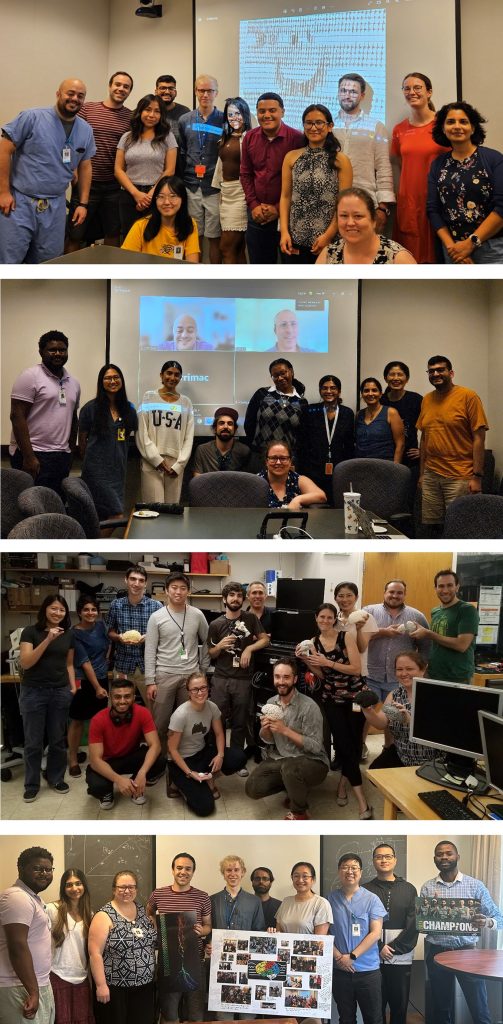Opportunities for Students and Trainees
We welcome students to work with us every year, whether supported by a number of programs or through internship experience! We aim to provide a welcoming and inclusive research and training environment to enable individuals from wide ranging and diverse backgrounds from high school students to Research Fellows and beyond to learn approaches and techniques allowing us to ask fundamental scientific and clinical research questions of the human brain. Below are some of the programs we have participated in over the years.
MGH Youth Neurology Education and Research Program
https://www.massgeneral.org/neurology/education-and-training/youth-research-and-education
MGH Summer Research Trainee Program (SRTP)
https://www.massgeneral.org/cdi/programs/students/summer-research-trainee-program-srtp
Short-Term Research Experience Program to Unlock Potential (STEP-UP)
Undergraduate Research Opportunities (HUROS) Fair
https://lifesciences.fas.harvard.edu/huros
Work Experiences
Any students or interns joining the laboratory will be asked to meet with different lab members to discuss projects, identify which projects are of interest that they would like to contribute to, and work with project-relevant lab members. Based on interest and possibly as a part of their training, students can shadow lab members working with patient participants in the hospital in either the epilepsy monitoring unit or in the operating room, learn workflows in processing neural and imaging data (which can involve coding or programming), and engage in scientific meetings.
Summary of Project Opportunities
The Cash Lab uses intracranial recordings from the human brain to reveal the mechanisms underlying wake, sleep, oscillations, and cognition and how brain circuits are altered by pathologies such as epilepsy. We have the unique and incredibly powerful opportunity to work with patients with electrodes implanted in or placed on their brains as part of their clinical care and study normal and abnormal physiology, especially to achieve an unprecedented view of neurons and circuits, from the scale of single neurons to population activity. These efforts are geared toward developing diagnostic and therapeutic techniques to treat some of the most devastating neuropsychiatric diseases. Bringing together expertise from scientists, engineers, and clinicians to work with this powerful complex data will help reveal the inner workings of the most complex organ!

